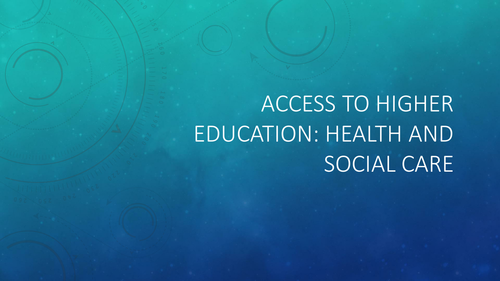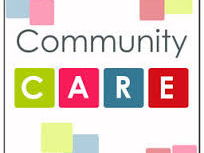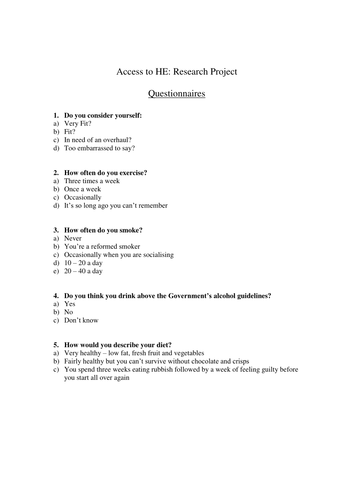
134Uploads
51k+Views
12k+Downloads
Vocational studies
Bundle

Health and Social Care
An excellent value bundle, saving 69%.
The bundle includes 9 topic areas and hours of activities for students in the following areas:
Anti-discriminatory Practice, Alternative and Complementary health Care, Communication, Community Care, End of Life Care, Ethics, Discriminatory Practices, Multi-Disciplinary Team Work.
Students will develop their ICT, Evluation, Research, Employability, English and Maths skills.

Multi-Disciplinary Team Work
Students will explore the following in relation to health and social care via a range of activities:
To Explain what is meant by the term ‘multi-disciplinary team’ (MDT)
To Evaluate multi-disciplinary team working within the Health and Social Care context
To Analyse the influence of a health care professional and their professional bodies

Safeguarding
This was originally delivered over 2, 3 hour lessons to Access to HE students.
There are activities including; types of abuse, accessible complaints procedures, serious case reviews and an activity where students have to design a new Health and Social Care Service compliant with safeguarding policy.
Please note that this lesson is aimed at adult learners who have some prior knowledge of safeguarding. Furthermore, learners are expected to work as independent learners in the same way that they will at university.
You will require computers for your students in order for them to do some independent research.
Bundle

Tutorial
This bundle features key tutorial topics surrounding bullying, drugs, employability, UCAS, alcohol, keeping healthy, radicalisation and more. It is aimed at 14-Adults.
There are numerous activities which include citizenship, values, english, maths, ICT and employability.
Bundle

Job Application Process
This bundle includes session plans, lesson resources and handouts to cover:
Interviews
Application Forms
Employment Letter writing

Communication in Health
A PowerPoint featuring a full lesson with student centred activities to cover the following..
LO1: REFLECT ON YOUR OWN COMMUNICATION SKILLS
LO2: Identify the reasons for effective health communication
LO3: Explain the importance of effective communication in health and social care
Students will also be able to utilise presentation skills, note-taking and referencing skills throughout and was originally aimed at pre-university course learners.
You will need to have some coloured card of which you will cut each sheet into various regular shapes for students to participate in a silent jigsaw activity whereby they will only be able to use non-verbal communication. You will also need some case studies of cases of poor communication which fit the needs of your learners. These are easily accessible via the internet-if you need help, please contact me.

Job Searching
Lesson Objectives:
To identify the common places to look for jobs.
To identify the less common places to look for jobs.
To be able to provide their own evidence for jobsearch trackers.
Aimed at job searchers/seekers over the age of 16.
Comes with student and teacher handout. Would benefit from a powerpoint presentation to aid in delivery.

Forensic Psychology
Whole lesson covering what forensic psychology is and treatment of criminals. Student activities contained.

Coping with Job Rejection
Whole Lesson covering the following via group and independent tasks:
To identify the common reasons why people might not be hired for the job.
To identify what people can do to counteract these reasons.
To identify the worst reasons why people are not hired for jobs.
Student documentation, a basic lesson plan and full PowerPoint have been included to provide you with everything you need to teach a lesson on job rejection.

Introduction to Mental Health
This PowerPoint is full of student activities and was originally created for Access to Higher Education Learners to be delivered over two days.
This unit of work covers introduction to mental health and mental ill-health, defining mental health, diagnostic manuals and reliability of these, types of mental illness, data exploration activities and scenarios based on the current mental health crisis.
I was observed twice throughout this unit and received a grade 1. There are lots of links which can be pulled out for lesson planning in terms of English, Maths, Employability and Equality and Diversity.

Impact of Multi-Disciplinary Approach and Professional Bodies
PowerPoint with some teacher prompts based on recent research and full of student activities. Students can be fairly self-sufficient during this session. This was originally written for Access to HE but will also be useful for A-Level.
Objectives are as follows:
To Recap prior learning
To Explain what is meant by the term ‘multi-disciplinary team’ (MDT)
To Evaluate multi-disciplinary team working within the Health and Social Care context
To Analyse the influence of a health care professional and their professional bodies

Macro and Micro Nutrients
A PowerPoint presentation which can be used for a tutor led introduction or given to students as a revision material. The PowerPoint covers the major nutrient groups.

Measuring Crime
Originally created for A-Level learners, this lesson is also appropriate for Foundation degree and Access to HE students studying sociology, criminology and psychology.
The lesson will enable learners to investigate how measuring crime has changed throughout the centuries as well as beginning to build up an idea of the reliability of crime data.
Students will the reasons why crimes are not always report and take an in depth look at White Collar Crime, with reference to two well known case studies.

Interviews
This is is a full lesson with activities which goes over in detail interview preparation, how to prepare for 'killer' questions and interview techniques to name but a few. The PowerPoint lesson resource has detailed notes in the notes field to help with delivery. There is a session plan included which can be adapted to suit your organisations paperwork.
Aims and Objectives:
To identify what an interview is for
To identify some common questions
To know how to deal with a “Killer Question”
To identify why people aren’t successful at interview.
Full information handouts for students as well as a student self evaluation activity on interview skills have been provided also.

Know Discriminatory Practices in Health and Social Care
Written for new BTEC Specification, Level 3, Unit 2, Equality and Diversity in Health and Social Care.
Full 2.5 hour lesson which is mapped to part of the assignment with student activities throughout which include scenarios, group research tasks, case studies.
Minimal teacher input required.

Community Care-Health and Social Care Provision
This lesson is aimed at developing students academic skills and giving them an overview into the various aspects of Community Care and why it is necessary considering the current state of the Health and Social Care system. This was originally delivered in two, 3 hour blocks, however can easily be adapted to work over several shorter lessons.
The lesson covers:
Overview of Community Care
Examples of Services
Primary and Intermediate Care
Real life examples with case studies
Day Centres
Home Care VS Hospital Care
Reducing Avoidable admissions
Self Management of Health Conditions
Tele-Health/Tele-Care
The activities which have been included for students are designed to prepare students for university e.g. writing literature reviews, investigative the effectiveness, evaluations, research and discussions.
References and Data used throughout.
Bundle

Study Skills/Employability
This bundle is aimed at ages 16-Adults and covers essential aspects of most study skills/employment courses.
It can also be used for tutorials during the lead up to students applying for jobs or applying for university.
This bundle also includes presentation skills, career planning and personal SWOT Analyses.
Bundle

Applying for Jobs
This bundle contrains lessons, handouts and activities which cover the following aspects of applying for jobs:
Career Planning and Personal Skills Reviews
Conflict Management and Coping with Setbacks
Stress Awareness
Employability Skills Workshop
Employment Letter Writing
Knowing Where to Look for Jobs

Research Project Preparation
Some detailed lessons and other student resources on research methods which were originally tailored for an Access to HE Course but will also be useful for students embarking on an EPQ or for A-Level students who are exploring research methods.
There are two versions of an interactive tutorial lesson, one aimed at health and another aimed at sociology research projects.
There are activities on questionnaire writing, interviews, data analysis, ethics and report writing structure. These resources would need to be delivered over a series of lessons.
They will need adjusting to suit learners needs.

Introduction into writing travel brochures/travel brochure writing
This is an introductory lesson into the features of travel brochures. There are activities and discussions for students to participate in throughout the lesson. This lesson could be used prior to students writing their own full travel brochure.
The Objectives are:
1. Recognise features of Travel Brochures
2. Examine features of Travel Brochures and their Audiences
3. Write an extract of a travel brochure




















